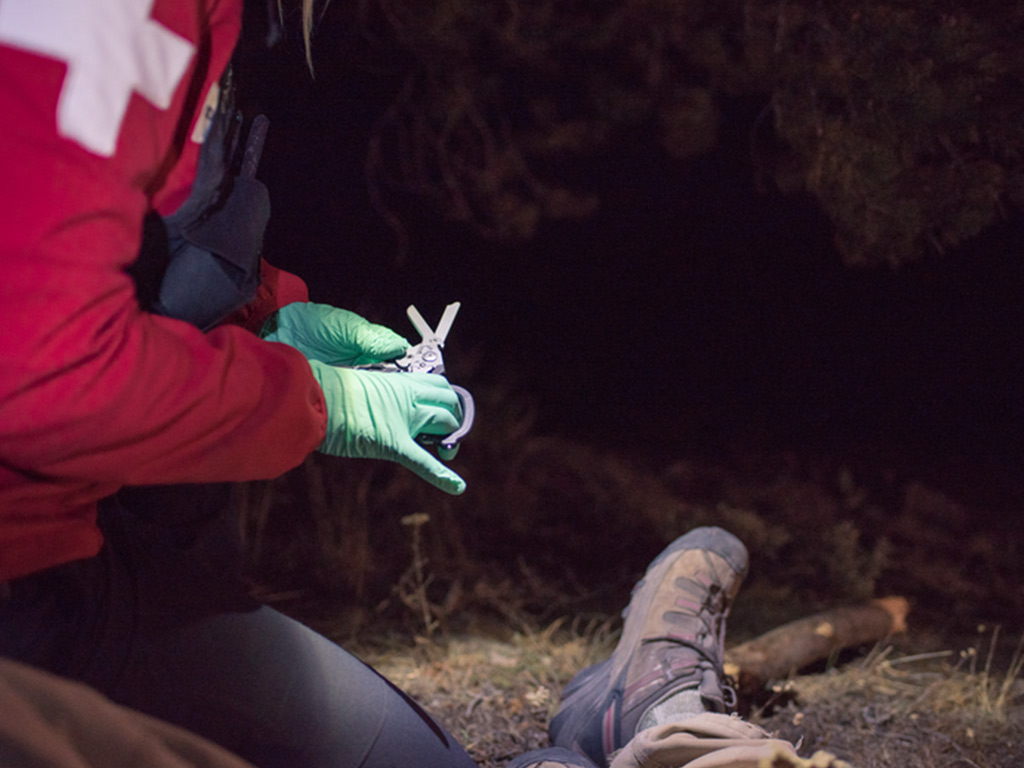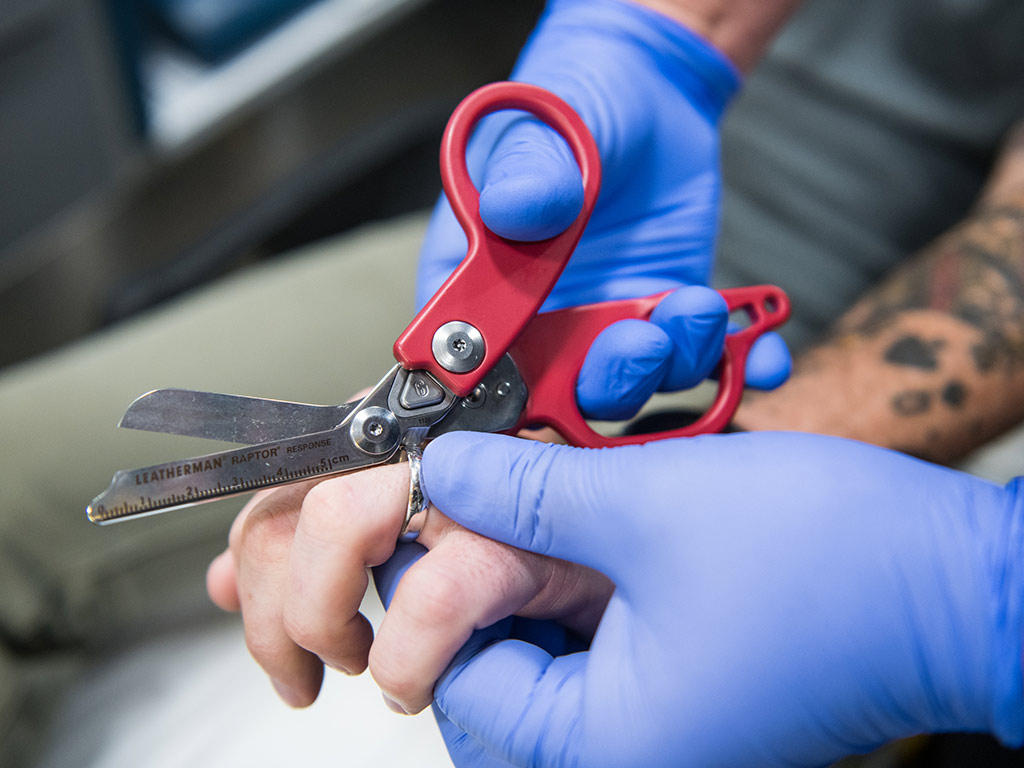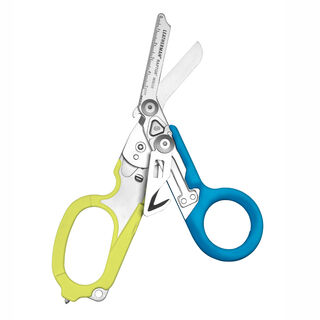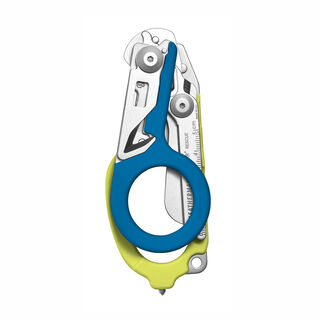What is an emergency preparedness plan?
Simply put, it’s knowing what you will do when an unexpected emergency or natural disaster strikes. Where will you go for safety? What are the first things you would do? If you and your family were separated, where would you meet up? Every situation is different, so you’ll need different plans for all of them, but an emergency preparedness kit that is appropriate for most needs is a good place to start.
What items should I have in my emergency kit?
An emergency preparedness or first aid kit is one of the most important things you can have. The activities you do will determine what you keep in it as well as where it lives. This emergency preparedness checklist will serve as a starting place, but feel free to expand upon it and make your emergency preparedness kit your own.
1. Bandages
One of the most commonly used elements of a first aid kit has got to be the classic Band-Aid. From simple scrapes to larger/deeper cuts, bandages cover it all. They’re available in a variety of sizes and styles to accommodate different uses. Get a mixed pack of them to cover all situations that might arise.
2. Sterile Gauze Pad
If you encounter a wound that is too big to be covered by a bandage then you’ll need to get some gauze to cover it. While it does cost a bit more to get the non-stick pads, anybody who has used one will tell you it’s worth the extra buck.
3. Elastic Bandage
The second component needed to make the gauze work. Have a roll of this in your bag so you can keep the gauze pad in place. They now have stretchy elastic bandages that stick to themselves, eliminating the need to keep a safety pin or clip in your kit.
4. Thermometer
Temperature is one of your body’s vital signs and a change in your temperature may indicate various illnesses. The sooner you can detect these fluctuations the sooner you can take action to address it. Digital thermometers are the standard these days, but it isn’t a bad idea to include a disposable thermometer so you don’t have to worry about the batteries going out.
5. Raptor Response Shears
A compact, portable version of our Raptor Rescue Shears, these foldable trauma shears don’t just give you super-rugged cutting power, but they include multi-tools that could help you out in a bind. Cut through tough materials with the 420HC knife, open oxygen tanks with the wrench, cut off rings, and more to get you (or others) out of a dangerous situation.
6. Nitrile Gloves
For the sake of avoiding cross-contamination with yourself and the person who has sustained an injury, get some nitrile gloves. The standard used to be latex, but with increasing cases of allergens towards latex, nitrile has become the new standard. Nitrile gloves also have a good general chemical resistance giving them a wider variety of applications. A quality pair of gloves can also double as an ice pack when a cold compress isn’t readily available.
7. Flashlight
Emergencies can occur at any time of day and sometimes the power can go out leaving you in the dark. Just a simple flashlight can eliminate this issue and provide you with the necessary lighting you need to address the emergency at hand.
8. Cold Compress
These are ideal for treating swelling from sprains, soothing aching joints, to temporary pain relief. Most of them don’t require pre-chilling to work; you simply squeeze the bag breaking the seal between the two components and it cools almost instantly. And for those of you who remember RICE (rest, ice, compress, elevate), the cold compress is an important component.
9. Antibiotic Ointment
Whether it’s Neosporin, Polysporin, or a no-name brand, every first aid kit needs antibiotic ointment. When dealing with minor cuts or scrapes you need to prevent infection. Most ointments will also help to aid in the healing process as well as reduce scarring.
10. Hydrogen Peroxide
Antibiotic ointments are great for preventing infections, but they don’t necessarily help clean wounds. With a small spray bottle of hydrogen peroxide, you can rinse away dirt and damaged cells and loosen dried blood. Hydrogen peroxide can also be used as a mouth rinse to relieve minor oral irritations.
11. Antiseptic Cleansing Wipes
If somebody has a wound that needs a deep cleaning, putting hydrogen peroxide on it won’t be quite enough. With a cleansing wipe, you can wipe away any dirt or debris that may have gotten into the wound. Properly cleaning a cut/scrape also enables quicker healing.
12. Over-the-Counter Medicines
This covers a wide variety of basic medications you might need for different scenarios. Acetaminophen and ibuprofen for pain relief and anti-inflammation, antihistamines for allergic reactions, and Pepto-Bismol for stomach problems. Make sure to regularly check the expiration dates to avoid having expired medications in your emergency kit.
13. Medical Information Cards
While the information on these cards might appear to be basic stuff, it can be a lifesaver. Write up a quick list of everybody in your household and a brief summary of their medical history. Also, include a list of allergens people may have as well. Not everybody that is going to use your emergency prep kit is going to know the individuals they are treating so it’s good to provide this kind of information.

Much of the aforementioned emergency preparedness supplies are standard first aid items. We encourage you to think about situations you may encounter and add on to your kit as you see fit. Maybe this means including a snake bite kit if you live in an area with venomous snakes. Perhaps some burn cream/gel if you know you’ll be encountering flames or other hot items. It never hurts to think ahead and prepare for the unexpected.
Disclaimer: This preparedness kit is a suggested guideline compiled by Leatherman Tool Group, Inc. Leatherman does not guarantee users to be safe or free from hazards associated with these activities. Please consult medical personnel in the case of an emergency.

.jpg)

















